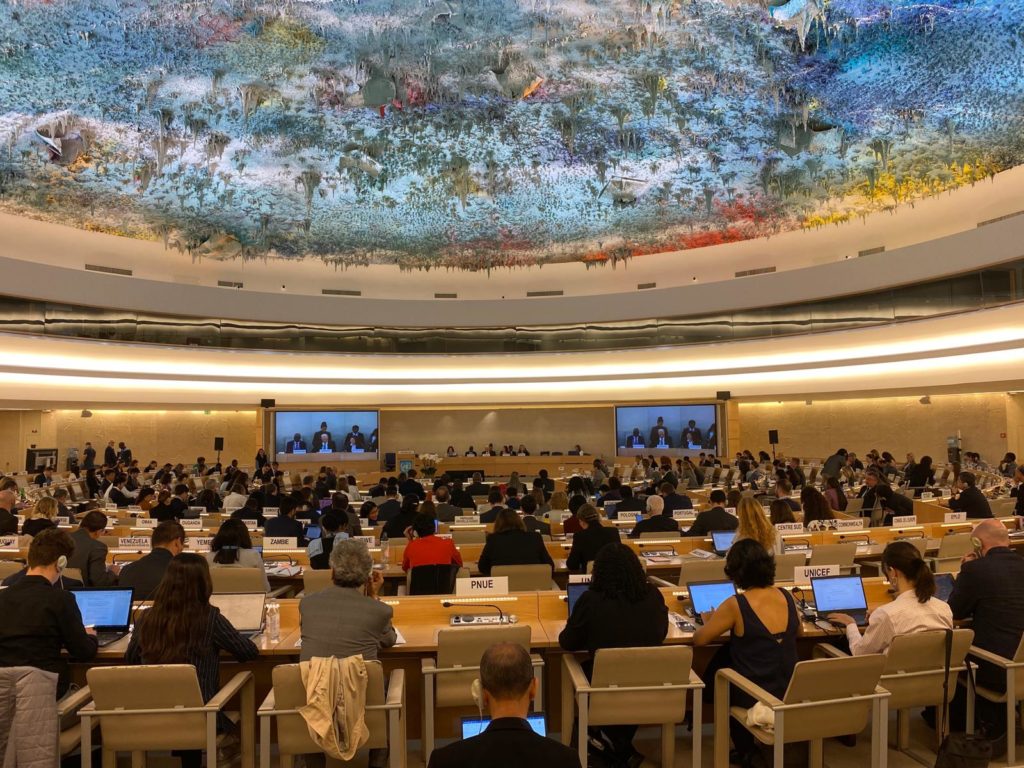Highlight 20/2024 – The Universal Periodic Review’s Role in Safeguarding Human Rights of Marginalized People
Naznin Sultana, 29 May 2024

The Universal Periodic Review (UPR) is a unique and effective mechanism of the Human Rights Council to promote and defend human rights around the world.
Instituted by the UN General Assembly resolution 60/251 (2006), the UPR periodically assesses and reviews the conduct of human rights across each of the 193 UN Member States.
There are several steps laid out in the UPR process. Firstly, a country is required to submit a national report at the Human Rights Council detailing its human rights situation, accomplishments, and challenges. Secondly, the country under review engages in a dialogue with other Member States. This dialogue allows for an open and constructive discussion of human rights issues, including those affecting marginalized population. Following the interactive dialogue, at the third stage, a report summarizing the discussions and recommendations is adopted. The country under review is expected to implement these recommendations and report on progress during subsequent review cycles.
There are some unique features of the UPR mechanism which makes the process distinct from other human rights processes. It is a non-binding mechanism and has no obligation for the Member States to comply with it. States take part in the process willingly and accepts the recommendations and criticism, spontaneously. UPR’s unique structure includes certain working groups, special rapporteur and treaty body review to track and implement the mechanism objectively and successfully.
Another unique feature of the mechanism is that it ensures equal treatment to all countries. All the States, irrespective of their economic endowments and military capabilities, are treated equally in the UPR. UPR also guarantees the highest level of impartiality and accountability to the Member States as not only Governments but also NGOs, Civil Society, and representatives of marginalized groups of the Member States play a part in the process and express their opinion freely. By making the governments answerable for their actions, the UPR grants the marginalized people space to demand equality and justice.
The UPR also includes a window to share best practices in human rights from around the globe. It also offers technical assistance and capacity building to help nations achieve their commitments under international law with regard to human rights, especially those pertaining to marginalized groups. This entails educating law enforcement personnel, changing legislations, and strengthening the organizations in charge of defending human rights.
The UPR process prioritizes the participation of those who represent marginalized populations. This ensures that the voices of marginalized communities are heard and their concerns duly addressed during the review process. The UPR also encourages dialogue, transparency and constructive change through its inclusive and interactive nature. By facilitating voices of those who are unheard or unrepresented, and holding governments responsible for their action. The UPR tries to make the global development and rights ecosystem fairer and just, for everybody. However, continual efforts are still required to guarantee the effective (national) implementation of UPR conclusions / proposals and securing human rights for all.
Naznin Sultana, Highlight 20/2024 – The Universal Periodic Review’s Role in Safeguarding Human Rights of Marginalized People, 29 May 2024, available at www.meig.ch
The views expressed in the MEIG Highlights are personal to the authors and neither reflect the positions of the MEIG Programme nor those of the University of Geneva.
